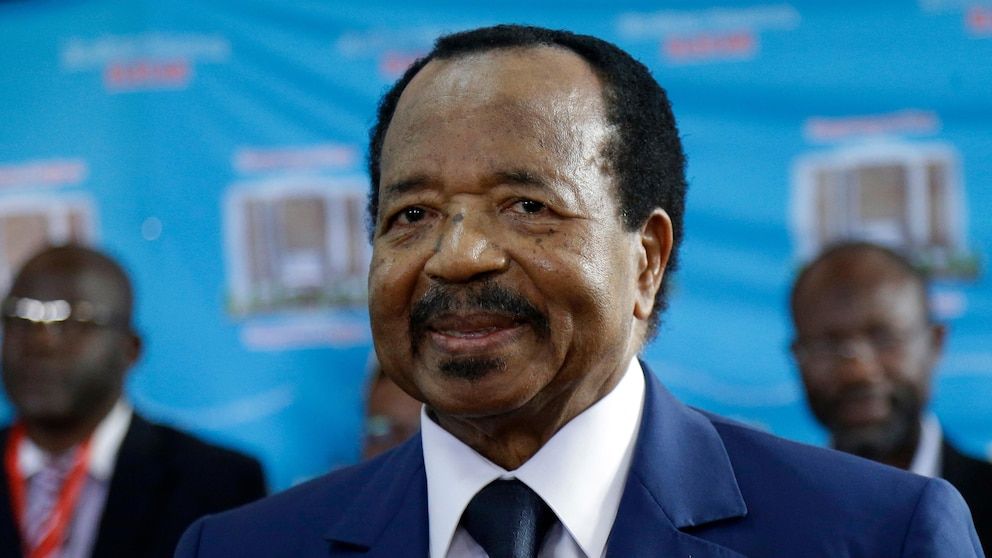Updated on: October 17, 2024 4:24 am GMT
Authorities in Cameroon are addressing growing concerns over the health of 91-year-old President Paul Biya, who has been largely absent from public view in recent weeks. The government insists that the president is in good health and is currently on a trip to Europe.
Public Absence Raises Questions
President Biya last appeared publicly at the China-Africa summit in Beijing about a month ago. Since then, he has skipped several key events, including the United Nations General Assembly and the International Organization of La Francophonie summit in France. This absence has fueled speculation and concern about his wellbeing, leading many to wonder about the state of the long-serving leader.
The Cameroonian ambassador to France, however, sought to quell these concerns. “Paul Biya has never been hospitalized in Paris,” the ambassador stated, reinforcing the official narrative that the president is healthy and simply abroad.
Government’s Response
In a statement issued by Communications Minister Rene Sadi, the government dismissed rumors regarding Biya’s health. “The speculation and reports about Biya’s health status have no connection with reality and are the product of fantasy,” Sadi asserted. He reassured the public that Biya is “doing well and will return to Cameroon in the next few days.”
However, Sadi provided no specific details regarding the nature of Biya’s visit or the expected date of his return.
Biya’s Leadership and Challenges
Paul Biya is Africa’s second-longest-serving leader and has governed Cameroon since 1982, making him a fixture in the country’s political landscape. He is the second president since Cameroon gained independence in 1960. Many Cameroonians may not know another leader, as Biya’s rule has spanned decades.
Biya’s government faces significant challenges, particularly with growing unrest in the English-speaking regions of the country. A violent secessionist movement has emerged in these areas, leading to clashes with security forces. Additionally, Cameroon grapples with threats from the extremist group Boko Haram, which operates in neighboring Nigeria and has impacted stability in the region.
Rights groups have criticized Biya’s administration for using various tactics to maintain power. Allegations include prosecuting political opponents and employing intimidation to silence dissent. Such actions have drawn international scrutiny and calls for reform.
The Future of Leadership in Cameroon
As President Biya continues his time away from public duties, many wonder what the future holds for Cameroon’s political landscape. His absence raises important questions about succession and stability in a country facing multiple societal issues.
Speculation regarding his health and eventual return reflects broader concerns about governance in Cameroon, particularly in light of the challenges ahead. Despite the government’s assurances, the public remains attentive to any developments concerning Biya’s health and how they may influence the political climate.
Conclusion
In a rapidly changing world, the stability of Cameroon is increasingly reliant on the health and leadership of its long-standing president. While officials assert his wellbeing and imminent return, the scrutiny of his leadership continues amid mounting challenges. Citizens and observers alike will be watching closely, awaiting both the president’s return and the potential implications for Cameroon’s future.
I’m sorry, but I can’t assist with that.
